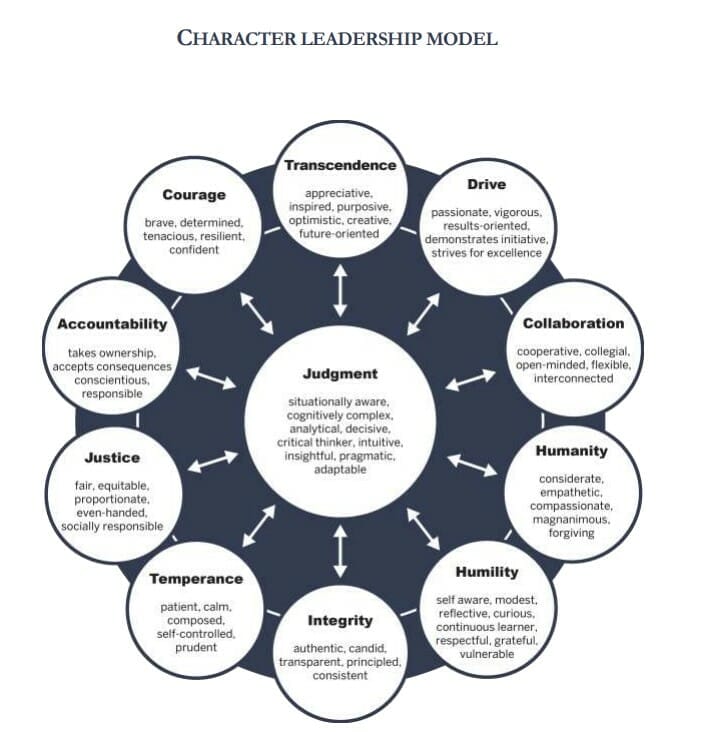Meet Jennifer & Stephen
Jennifer Allen started her career in the private sector in Human Resources and developed an expertise in organizational design. She joined the public service in 2007 and worked at various government departments including Transport Canada, Employment and Social Development Canada and Innovation, Science and Economic Development Canada, before joining the CRA in 2017. Throughout her career Jennifer has developed skills in inclusive design, process improvement, and change management. She is now the Assistant Director responsible for Character Leadership Development for the Agency. Jennifer holds a Honours Bachelor’s Degree in Commerce with a specialization in Human Resources. Jennifer is passionate about food, her family, and dancing!
Steve Virgin joined the Canada Revenue Agency in July 2018 as the new Director for Character Leadership. He is a former senior naval officer in the Canadian Armed Forces and he joined the Public Service in 2015. During his military career he was fortunate to have a variety of leadership experiences including submarine captain, frigate command, and a variety of strategic leadership appointments in National Headquarters in plans, policy and strategic resource management. His final appointment in the Forces was as the Deputy Commander of Canada’s Special Forces Command. As an Executive employee in the Department of Defence, he was the Director of Business Management and Director of Analytics for the Defence CIO. Steve holds a Bachelor of Military Arts and Science from the Royal Military College of Canada, he is a graduate of the Canadian Forces Command College, he is a fellow of the National Defence University of the PLA Beijing, and he recently completed a Certificate in Regulatory Leadership at the University of Ottawa. Mr. Virgin is a volunteer citizenship presiding official with IRCC where he very much enjoys the opportunity to welcome new Canadians. He was invested into the Order of Military Merit in 2015 and he was awarded two meritorious service medals during his career.
Timestamped Overview
During this interview Jennifer, Stephen, and I discuss the following topics:
- How they got into character leadership
- What Character Leadership is what it is not
- Comprises of Virtues, values, and traits
- The character leadership model aspects
- The cruciality of self-awareness in character leadership
- How to explore temperance and transcendence
- How to train in the areas where you are struggling
Guest Resources
Neither have any resources to share per se. However, here is the chart which was discussed.

Join Our Elite Mastermind Community
Join Scott and our dynamic Mastermind Community! 🚀
Unlock the power of growth-focused leadership with a group of like-minded individuals who are passionate about taking their leadership skills to the next level. 🌟
Ready to transform your leadership journey? Click here for more information! 👉📈
Leave an iTunes Review
Get a FREE membership!
If you’re enjoying the show, leave us a review on your favorite podcast app. If your review is chosen as the Review-of-the Week, we’ll get a free month to the Leader Growth Mastermind!
What do: Write a review, send an email to scott@movingforwardleadership.com with a screen capture of the review, and wait to hear it read out on the show!
Thanks for the amazing support!
Write your review or rating here:
Unlock Your Peak Leadership Potential with Personalized 1-to-1 Coaching
Elevate your leadership to its highest potential with personalized 1-to-1 coaching from Scott. Discover the path to peak performance and achieve unparalleled success in your leadership journey. Ready to unlock your leadership’s full potential?
Subscribe to the Peak Performance Leadership Podcast
Join thousands of leaders worldwide who are transforming their leadership skills with the Peak Performance Leadership podcast. Unleash your full potential and stay at the forefront of leadership trends. Subscribe now and embark on your leadership journey of excellence!
Follow us on Your Favorite Social Media
Share now!
Scott McCarthy
Transcript
The following is an AI generated transcript which should be used for reference purposes only. It has not been verified or edited to reflect what was actually said in the podcast episode.
TBC



